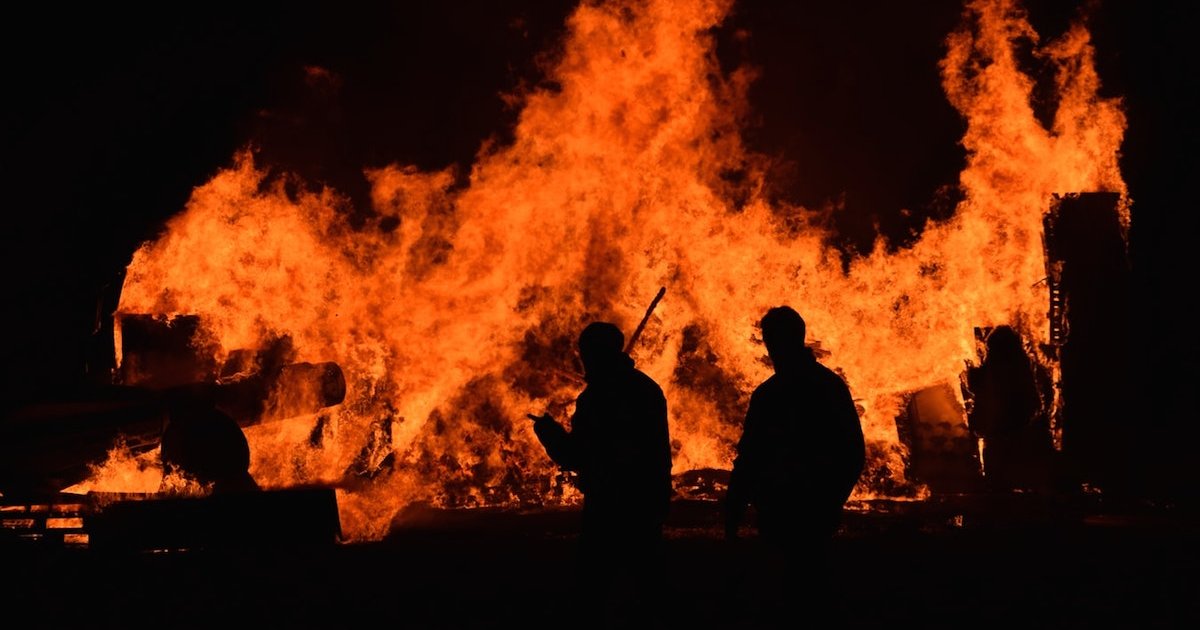Cancer and Air Quality Due to Wildfires
- Smoke, debris, and wildfires have substantially decreased the area’s air quality
- Lung cancer patients need to be especially careful when going outside
- Smokers should avoid smoking at all costs
Related: Do Wildfires Pose a Cancer Risk?
Read MoreThe West Coast air is thick, and some residents say it feels like it’s burning their chest. As evacuations are underway, cancer patients should take extra precautions with their safety. Lung cancer patients living in the area should be especially cautious, due to the air quality, during this unprecedented time.
A Sharp Decrease in Air Quality
Many residents are struggling to breathe amidst the orange, smoky air. It’s important to remember that it’s not just trees burning. Cars, homes, and more, are all in flames and this leads to more particles in the air. Due to the high levels of particle matter, this has been a record-breaking year for poor air quality. “We all have sensitive lungs to outside irritants," says Dr. Reckamp. "And smoke is a large irritant when the particles are in high quantity.”
This is especially concerning because it’s still early into the fire season. The “NowCast” Air Quality Index (AQI), which indicates readings from fixed monitors throughout the U.S., rates an AQI score above 200 as “very unhealthy.” West Coast wildfires have driven AQI levels above 200 since September 10.
https://www.instagram.com/p/CFLL92XpNkC/
How to Stay Safe
Dr. Reckamp says, "The best thing that lung cancer patients can do is minimize their time spent outside. And if you have to be outside for some reason, things like [wearing] N95 masks can be helpful."
Related: Take it From a Guy Who Looks at Diseased Lungs Every Day Stop Smoking
To protect yourself from ash and debris even more, you can wear a heavy-duty mask called a respirator if you have to go outside for an extended period of time. Keep your windows and doors closed, and to get airflow you can run an air conditioning unit (but close the fresh air intake). Avoid candles, fireplace fires, and gas stoves, because all three may further increase pollution. Also, try not to vacuum as it stirs up the particles already in your home.
It's important to stay away from the smoky air, and while you can still aim for the same amount of physical activity as before, you need to practice caution.
"When the levels are in the unhealthy range, it's best to stay indoors," says Dr. Reckamp. "Have the windows closed, if possible. And have other means of cooling the area you're in. Maintaining your level of activity should be fine, but you also have to listen to your body. So if a person has symptoms like a cough and shortness of breath, you have to limit exercise."
Health experts have warned that short-term effects of exposure to high concentrations of wildfire smoke could have dire consequences. People who are exposed to the low-quality air are more likely to die of heart attacks or be hospitalized if they have asthma.
I’m Healthy, Do I Need to Worry?
People who are currently in good health still need to take precautions, too. "Everybody has risks for inhalation,” says Dr. Reckamp. You can have acute issues with difficulty breathing or coughing. The chronic issues are more long-term effects, and can contribute to chronic disorders."
Dr. Reckamp urges extra caution for those who smoke. "The key thing [about the air due to the wildfires] is that for everybody who smokes, know that the symptoms will be much worse. 'Not smoking' are recommendations one, two, and three [for taking care of your lungs during the wildfires]."
What’s Next?
A scene that has been deemed “apocalyptic” continues and everyone must keep their safety and the safety of loved ones top of mind. And lung cancer patients should be especially cautious.
What Do People With Lung Cancer Need to Know About COVID-19?
.
Learn more about SurvivorNet's rigorous medical review process.


